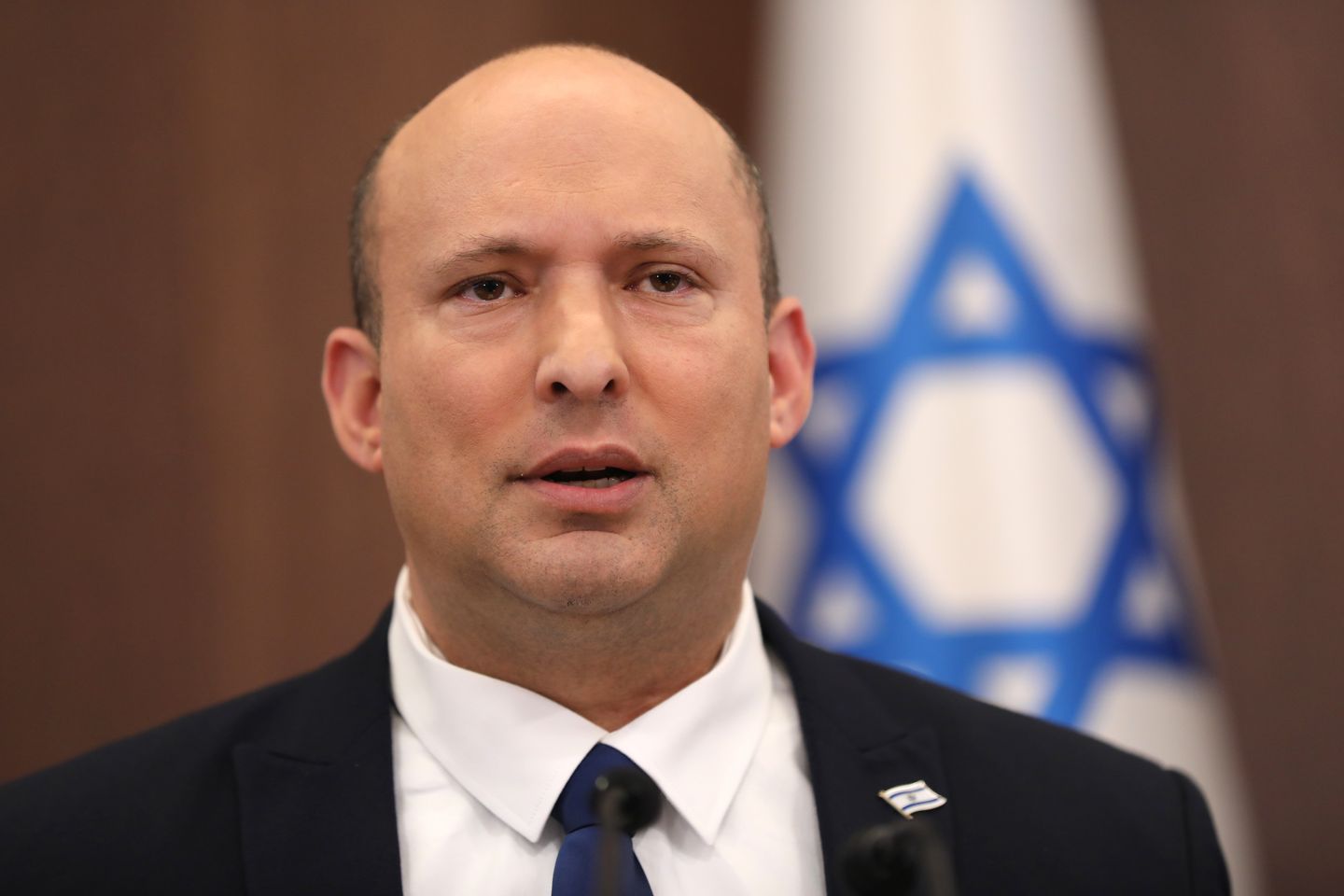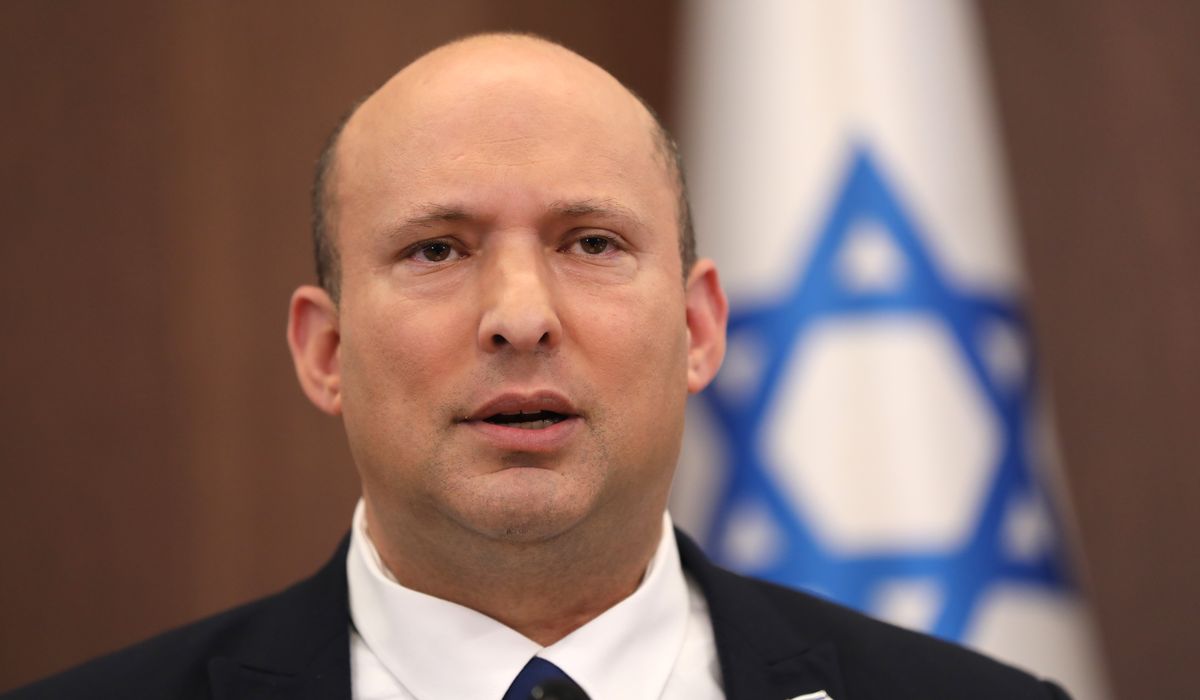

Israel and the United Arab Emirates inked a precedent-setting free trade deal on Tuesday, the latest in a continuing series of diplomatic breakthroughs stemming from the “Abraham Accords” that were brokered by the Trump administration and greatly eased the Jewish state’s historic isolation in the Arab world.
Tuesday’s agreement is the first-ever signed between Israel and an Arab nation and is predicted to expand Israeli bilateral economic ties with the UAE by nearly $10 billion over the coming half-decade. The accord eliminates tariffs on some 96% of goods traded between the two countries.
Israeli Prime Minister Naftali Bennett, in a Twitter post on Tuesday, hailed the deal as a breakthrough and said it was “the fastest [free-trade agreement] to be signed in Israel’s history.”
The deal comes less than two years after the Trump administration cleared the path for the diplomatic normalization agreements reached in 2020 between Israel and several previously hostile Arab powers, including the UAE, Bahrain and Morocco. Israel and the Gulf Arab states share a deep suspicion of Shiite Muslim Iran and its network of allies throughout the region.
The free-trade agreement also arrives as President Biden is reported to be preparing to visit the Middle East in late June. Mr. Biden has broadly supported the Abraham Accords, albeit with notably less enthusiasm than the former administration, which went to lengths to broker the normalization agreements.
The accords, named after the prophet recognized by Judaism and Islam, also included a diplomatic deal reached between Israel and Sudan, although the latter has experienced domestic political turmoil in recent months following an October military coup.
There is, however, broad consensus among regional experts that the agreements marked a milestone: the first public acknowledgments of Israel by Arab nations since Egypt and Jordan broke from the rest of the Middle East and established diplomatic ties with Israel in 1979 and 1994, respectively.
Saudi Arabia, the most powerful of the Gulf Arab states and a chief rival of Iran, has yet to join the Abraham Accords, but there are indications the issue is being closely considered in Riyadh — and that the Biden administration has quietly picked up where former President Trump’s team left off in 2020 by trying to facilitate warmer relations between the Saudis and the Israelis.
Israeli Foreign Minister Yair Lapid said on Monday that Israel is coordinating with the United States and Gulf Arab powers toward the goal of normalizing ties with Riyadh. “We believe that it is possible to have a normalization process with Saudi Arabia. It’s in our interest,” Mr. Lapid told Army Radio, the Israeli radio network operated by the Israel Defense Forces.
“We’ve already said that this is the next step after the Abraham Accords, to talk about a long and careful process,” he added, according to a report by The Times of Israel. “We’re working with the U.S. and the Gulf states on this.”
The report noted that while Israel and Saudi Arabia do not have official diplomatic relations, covert ties have warmed in between the two in recent years, with the powerful Saudi Crown Prince Mohammed bin Salman reportedly seeing Israel as a strategic partner in the fight against Iranian influence in the region.
It remains to be seen how Riyadh’s calculus may be impacted by the expansion of ties between Israel and the UAE, which generally aligns with Saudi Arabia on the regional geopolitical landscape.
Official Israel data shows Emirati-Israeli trade stood at $1.2 billion in 2021, according to Reuters. UAE officials on Tuesday predicted to the wire services that bilateral trade will grow to more than $10 billion within five years as tariffs are reduced on goods including food, medicine, diamonds, jewelry, fertilizers and other chemicals.
The UAE-Israel Business Council forecasts that there will be almost 1,000 Israeli companies working in or through the UAE by the end of the year.
The trade agreement was signed amid ongoing Israeli-Palestinian violence, which remains a highly sensitive issue between Israel and Arab powers around the Middle East. Even as it was moving forward with the trade deal, the UAE on Monday issued a statement sharply criticizing a group of right-wing Israeli activists for holding a rally in the courtyard of the Palestinian-controlled Al Aqsa Mosque compound in East Jerusalem’s Old City.
